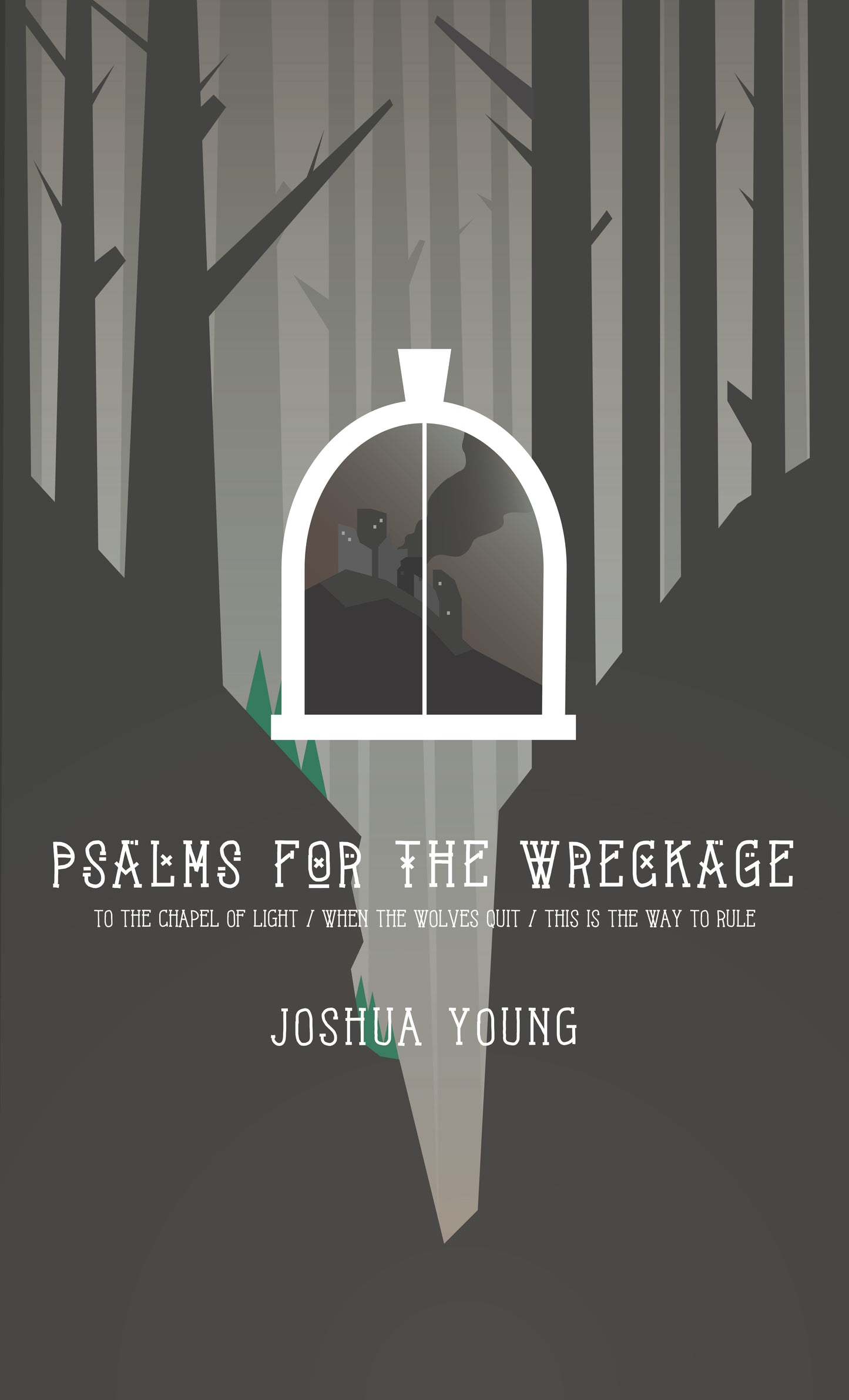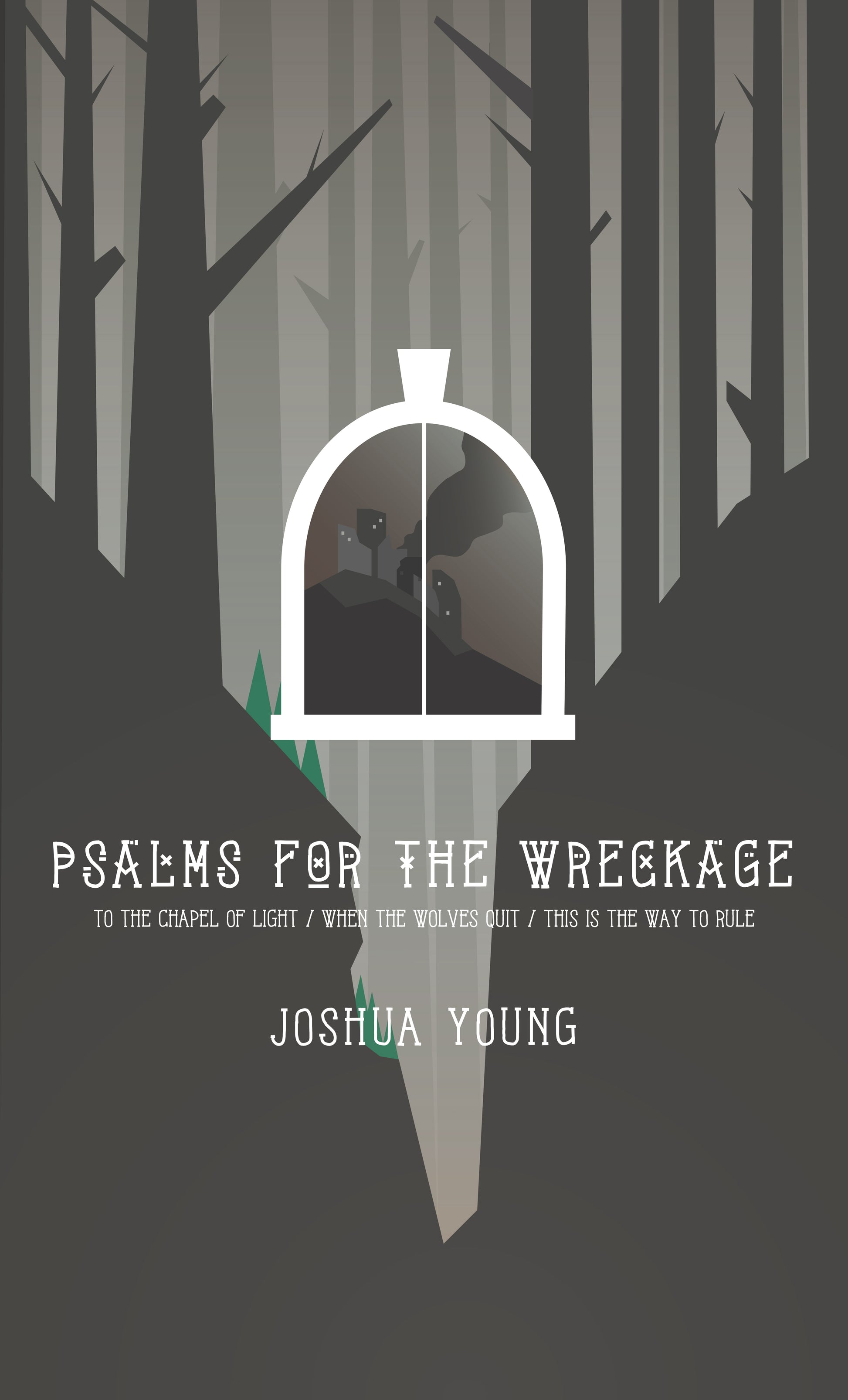Psalms for the Wreckage: Three Plays by Joshua Young
Psalms for the Wreckage: Three Plays by Joshua Young
Couldn't load pickup availability
Psalms for the Wreckage:
Three Plays by Joshua Young
$19.95
Psalms for the Wreckage collects Joshua Young's trilogy of scripts in verse—To the Chapel of Light (Mud Luscious Press, 2012), When the Wolves Quit (Gold Wake Press, 2012), and a third, previously unpublished play in verse This is the Way to Rule—in a single edition. Exploring faith, dogma, and the politics of power, Psalms for the Wreckage is a stunning collection of poetic, epistolary playwriting as well as a fascinating look at one author's evolving relationship with genre.
Full-lengths, Trilogy, Tragedy, Verse
Cast: BROTHERS, SISTERS, SURVIVORS
Cover design by Ryan Spooner
PRAISE
Who are the characters in Joshua Young's Psalms for the Wreckage? Probably places. Probably ghost towns, silos or churches, probably "just the stretch of highway and grain, and maybe dead grass" that "leads to sin or Arkansas." The survivor sounds of these sites travel, "Memphis-bound and gagged," by wrenching epistle and sundered imagism through a landscape of ongoing apocalypse. There's an "ark in a middle of a field stacked full of rocks and newspapers." There's a place where "you might wave a cigarette around like a roman candle or a fishing pole." In reminding us that the interior may be everywhere, that all scenes might already be deleted, Young's plays offer a travel guide to "parts of America no one gives a fuck about" and to the unquiet beauty that washes its creases with dust.
—Zach Savich
"These are the places the road sometimes swallows"—so writes Joshua Young of North American hunger, its cruel and unseemly habits figured here in series of "scenes," "backdrops," and tableaux. Yet Young's methods are restless: this whopping trilogy draws on the conventions of the screenplay, the verse play, prose poem, and epistolary address; vernacular forms like the ballad, sermon, obituary; genres including the western, gothic, mystery. He writes a kind of pastoral noir as well as something like the fantastical mosaic literary-historical mode pioneered by another Young—Marguerite, fellow Midwest eccentric and logorrheic crank, who once said such writing "is about the recognition that there is no single reality. But the beauty of it is that you nevertheless go on, walking towards utopia, which may not exist, on a bridge which might end before you reach the other side." Joshua Young's Psalms for the Wreckage is a beautiful, scary trip across "this middle ground between closure and myth."
—Hannah Brooks-Motl
One of the few books not already made superfluous by the late hour of our species, Joshua Young's Psalms for the Wreckage may be the sort of nightmare we require in order to wake transformed. This much is certain: The West is a smoldering pile. The West is a smoking gun. The West is done. "We are all the way west & there is nothing more than cities cratered or shoved into the sea... & someone keeps talking about the way things were." Through a "popcorn of concrete & glass," we follow a "trail of wreckage, city after city, landscape after landscape" where soldiers set more fires "though there is nothing left to burn," as our Leader plugs his ears and repeats, "i am not listening because i cannot hear you & i cannot understand you." (And hey: "after all we put him there.") If there is good news for readers: in Psalms there are survivors. And ghosts. And maybe the DJ from the film, The Warriors; but in a made-for-TV movie, à la The Day After; using the last working mic in McCarthy's novel, The Road; with all of it distilled to poetry via a possibly unstageable play. The endless scenes of death enact the death of scenes, the death of acting, the death of narrative itself—in Young's Psalms even the notion of genre, driven to desperation, explodes itself in the marketplace. Luckily for readers there remains a publisher like Plays Inverse to catalog the pieces.
—Christian Peet
Share

